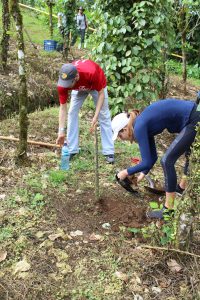Action First, Knowledge Last

To view the photo-rich magazine version, click here.
Originally appears in the Spring 2020 issue.
By Brian William Ogle
As I was driving home one afternoon, an interview on NPR got me really thinking. This interview was with a psychologist, B.G. Fogg (author of Tiny Habits), who was discussing human behavior and why it is so difficult for humans to alter behaviors or habits. She went into the basic theory of dopamine release, which serves as a short-term reward mechanism. Much of what she was discussing was nothing I had not already learned in my educational psychology courses. However, what really caught my attention was the concept of friction.
From my reading on the subject, I cannot accurately define this concept as there are so many different definitions that have been presented. What these articles share in common is a notion that a change in mental state prevents an action from being continued. This could be distractibility, environment, etc. Yet, what all of the readings, and this NPR interview, had in common was the application: it disrupts the reward cycle in behavior change, thus eliminating the new behavior.
My mind instantly shifted to the application as an educator and my attempts to increase sustainable, or green, behaviors in my learners. I have heard similar frustrations from my colleagues about the inability to create sustained change in learners as it relates to adopting green behaviors. My hypothesis is that friction is at play here.
This content is restricted to subscribers only.
If you are not yet a subscriber, please consider taking out a subscription here.
If you are an existing subscriber, kindly log in or contact us at info@greenteacher.com for more information.





